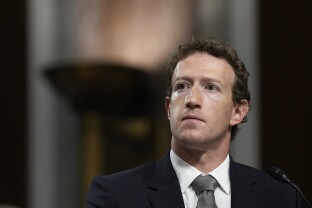The presidential primaries in Wisconsin this week are virtually without drama. The referendums, though, are something else entirely.
The two elections-related referendum questions come from Wisconsin’s Republican-controlled state legislature, a joint resolution passed in two consecutive sessions that got kicked to the electorate because it seeks to amend the state’s constitution.
They center on external work in elections, both financially and in administration, and like many Republican-led efforts on elections, they hinge on 2020. The first referendum asks if a section of the state’s constitution should be created “to provide that private donations and grants may not be applied for, accepted, expended or used in connection with the conduct of any primary, election or referendum.”
The second asks if a section should be created “to provide that only election officials designated by law may perform tasks in the conduct of primaries, elections and referendums.”
That may seem a little in the weeds, but it’s drawing a sharp partisan response.
“I got a pop-up on Facebook from MacIver Institute, which is a conservative think tank, telling me to vote yes,” Democratic Rep. Mark Pocan said. “Which convinced me I need to vote no.”
“I’m gonna vote yes on both of them,” said Republican Rep. Tom Tiffany. “Elections are a public function that should be carried out by publicly elected officials.”
Even Donald Trump has gotten involved: His campaign posted a graphic pushing “yes” votes in Wisconsin last week.
Twenty-seven states have rules on the books to prohibit, limit or regulate private or philanthropic dollars in running elections, according to the National Conference of State Legislatures. All rules have come after 2020.
This question on external, private funding is rooted in the debate surrounding grants distributed by the Center for Tech and Civic Life in 2020. Meta founder Mark Zuckerberg and his wife, Priscilla Chan, provided the cash for the grants.
While over 200 communities in Wisconsin got some of the $10.6 million allocated across the state, $8.8 million of it wound up in the state’s five largest cities: Milwaukee, Madison, Green Bay, Racine and Kenosha. Republicans have been livid that so much of the money went to those cities, each a Democratic stronghold.
“You have private individuals that are clearly, rabidly associated with the left spending millions and millions of dollars to help subsidize election workers. No, that’s not OK,” Republican Rep. Derrick Van Orden said.
The money was used for election functions such as hiring more poll workers and providing them with pay raises and funding cleaning equipment, drop boxes, tabulators and openers for the ballot envelopes.
“If we won’t, through the state legislature, fund election infrastructure, and other outside folks are willing to help fund things like ballot boxes, why wouldn’t you take that?” Pocan said. “That’s supposed to be the Republican argument, that government doesn’t have to do everything. Except when it comes to people actually voting, then they don’t agree with it.”
Sign up for daily updates from NOTUS.
“I don’t have time to research every private dollar that makes its way into our elections. What’s the motivation for giving it? Is it being appropriately used after it’s made its way into a municipality’s coffers?” said Republican Rep. Scott Fitzgerald, who voted yes on both in early voting. “I don’t think that’s something that we should be subjecting our elections to at all.”
The second referendum question stems from a consultant with the National Vote at Home Institute, Michael Spitzer-Rubenstein. He advised the city of Green Bay on how to make elections run more smoothly, providing advice on training or early in-person voting.
He’d previously worked on Democratic congressional campaigns, which did not thrill Republicans. Other concerns came about when he was listed to pick up keys at the convention center, where the city counted absentee ballots (though someone else wound up getting the keys). On Election Day, he also wore a name tag indicating he was an employee versus a consultant.
But the referendum doesn’t specify what qualifies as an activity that conducts an election, nor does existing state law, which already says appointed election officials are the only ones who can conduct elections.
A spokesperson from Republican Sen. Ron Johnson’s office said he’d voted yes for both. Democratic Rep. Gwen Moore posted a video on X encouraging others to vote no.
The vote of the public is the final step. If approved, the referendums would come into effect for both the August primary and November general elections.
—
Nuha Dolby is a NOTUS reporter and an Allbritton Journalism Institute fellow.
Sign in
Log into your free account with your email. Don’t have one?
Check your email for a one-time code.
We sent a 4-digit code to . Enter the pin to confirm your account.
New code will be available in 1:00
Let’s try this again.
We encountered an error with the passcode sent to . Please reenter your email.


